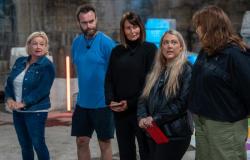Opinions This is a debate post. The post expresses the writer’s views.
This week is World Book Day. A day to focus attention on books, the desire to read and the joy of reading. We will use this day to discuss the balance between screens and physical books at school.
Has the digitization of the school gone too far? Should there be fewer Ipads and more books in school again?
All too often we hear that the screen has become a substitute for books, and that the pencil has been replaced by the index finger on the iPad.
Norwegian children read both less and worse than before. The reader survey published on Tuesday this week shows that fewer adults read to their children. One in four parents never read aloud to their children, which means that the differences between children increase.
“A trampoline for the imagination”
Early intervention is also key when it comes to reading skills and subsequent enjoyment of reading. Norwegian children had the lowest desire to read of all 65 nations in an international survey.
Quietly, an enormous change has taken place in our children’s everyday life. What does it do to our children?
We need to discuss the balance between screens and physical textbooks in our schools.
Author Tor Åge Bringsværd has said: “A book is like a trampoline for the imagination.” It gives the thought something to jump and bounce on.”
That is well said. The books open up new fantasy worlds we wouldn’t have had access to otherwise. And it gives us the opportunity to imagine, create, fantasize and create.
Bringsværd’s books about “Ruffen” and “Karsten and Petra” have shaped many a childhood, and the latter in particular is one of the biggest Norwegian children’s book successes ever. The books have created many reading experiences in which the children could participate.
A good book allows us to help create the narrative. This ability to imagine things defines us in many ways as human beings.
Today, young people scroll through apps like TikTok, and get the stories ready to go. These are preferably short videos with clear messages. And what you like, you get even more of. This is how TikTok becomes self-reinforcing, giving you more of what you want – and less of what you don’t know about.
So what must we do?
In government, the Labor Party has, among other things, prioritized funds for printed teaching materials, a national reading centre, competence measures for teachers, reading projects and for strengthening school libraries. The government has set up a committee to provide a better knowledge base on how children’s and young people’s use of screens in daycare, school and free time affects health, quality of life, learning and upbringing, and put forward a new strategy for digital competence and infrastructure in daycare and school. Furthermore, the government has announced that a reading strategy will be presented this spring.
It was absolutely necessary, and shows a government that takes the issue seriously.
We are fundamentally concerned about how society will look in the future if reading and writing skills are lost. We can no longer sit and watch as the students in the Norwegian school become passivated, completely digital, and lose both their handwriting and their grip on the pencil. They also become less able to concentrate on reading long, complex texts, a skill that is important for mastering studies, working life and social life in the future.
Let’s lift the books and love of reading into school again
Let’s resurrect the writing books, the blank drawing books and the colored pencils in school. And let’s ensure students have enough school books and books for pleasure reading to be a real alternative to the iPad.
It might sound like going back in time. In reality, it’s the opposite: It’s about getting a well-thought-out and educationally rooted use of digital aids in school. Without basic reading and writing skills, it is difficult to be an active participant in society. It is about giving the next generation the opportunity to participate in the same way as we have been given.






